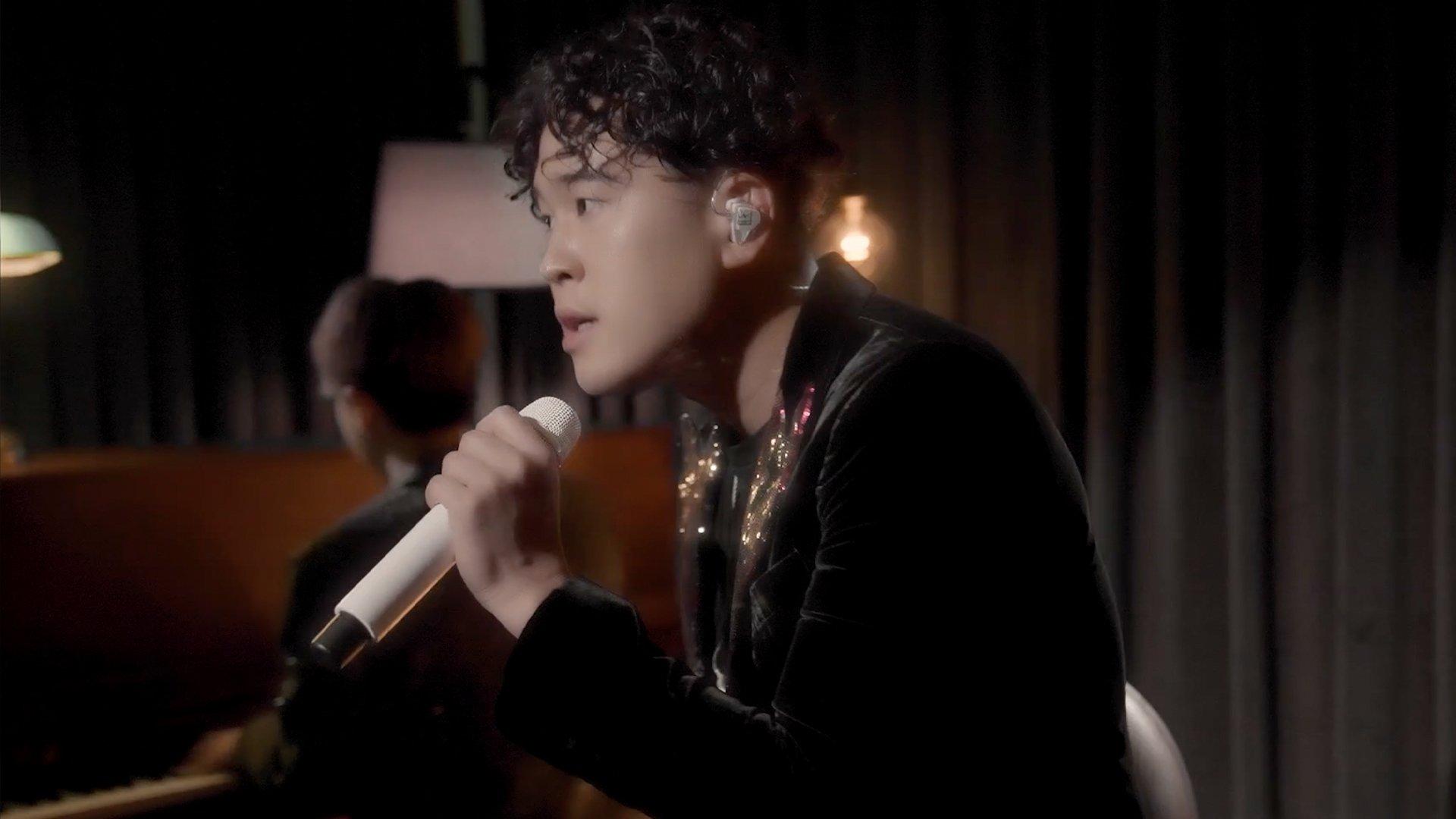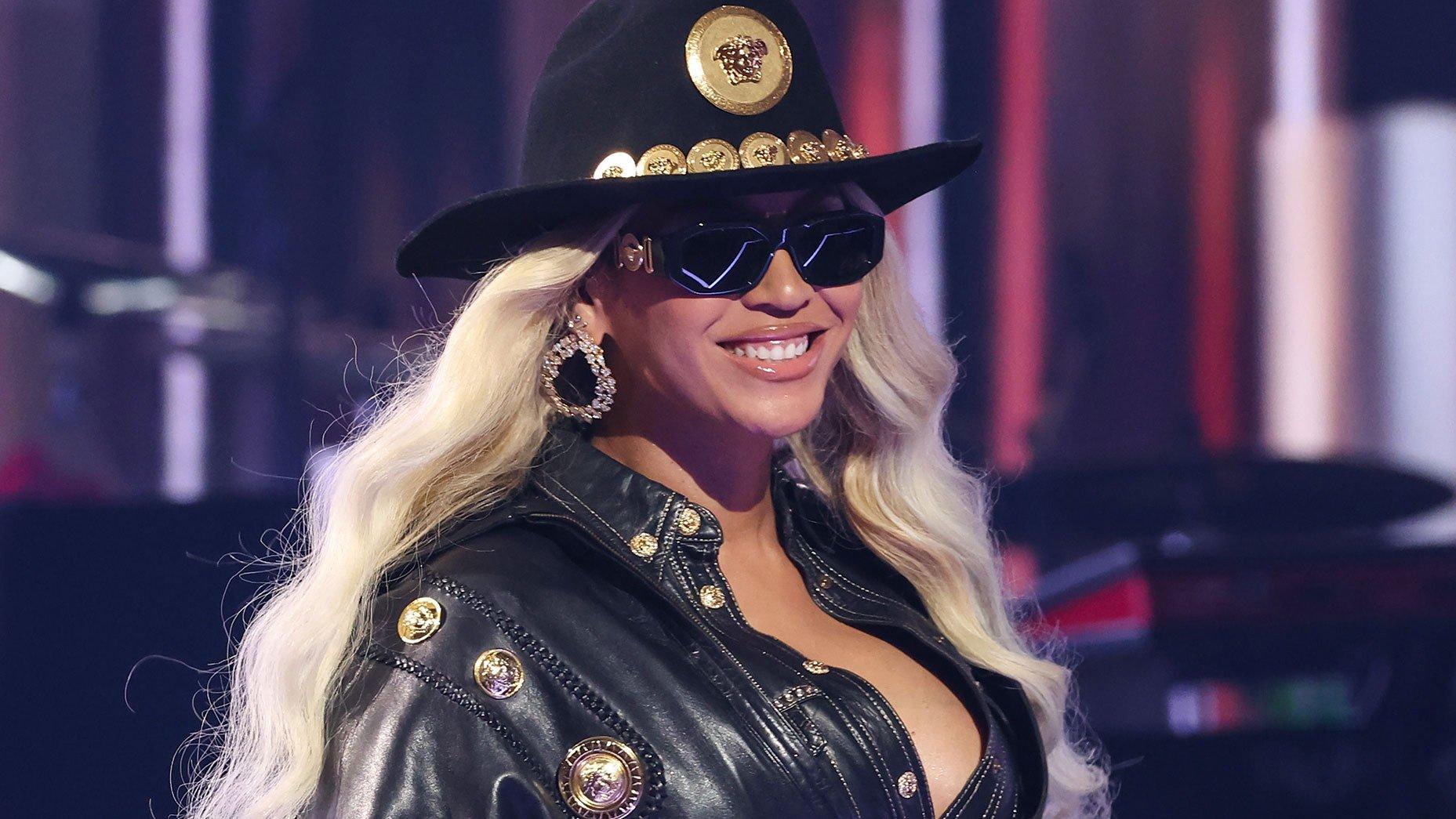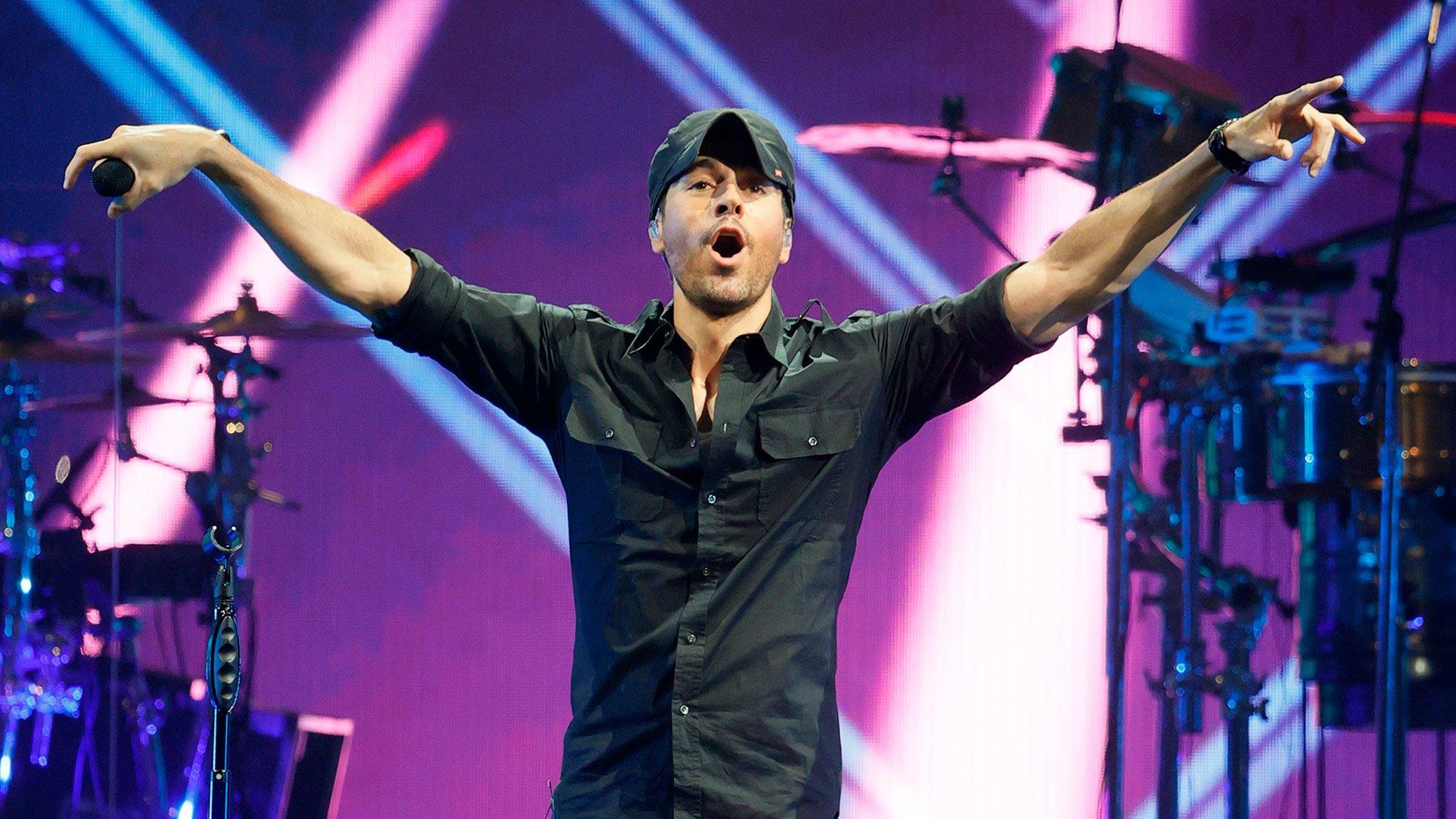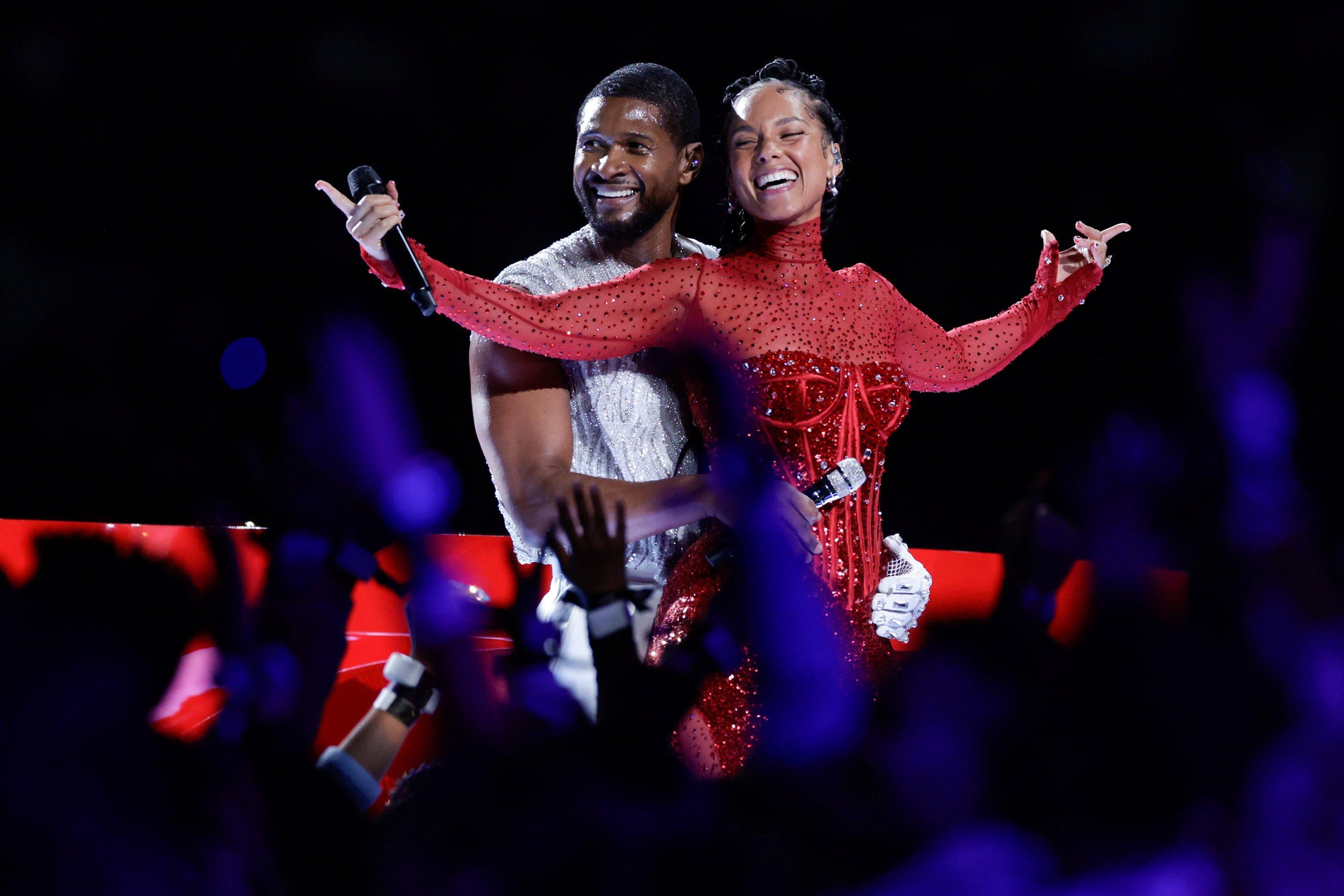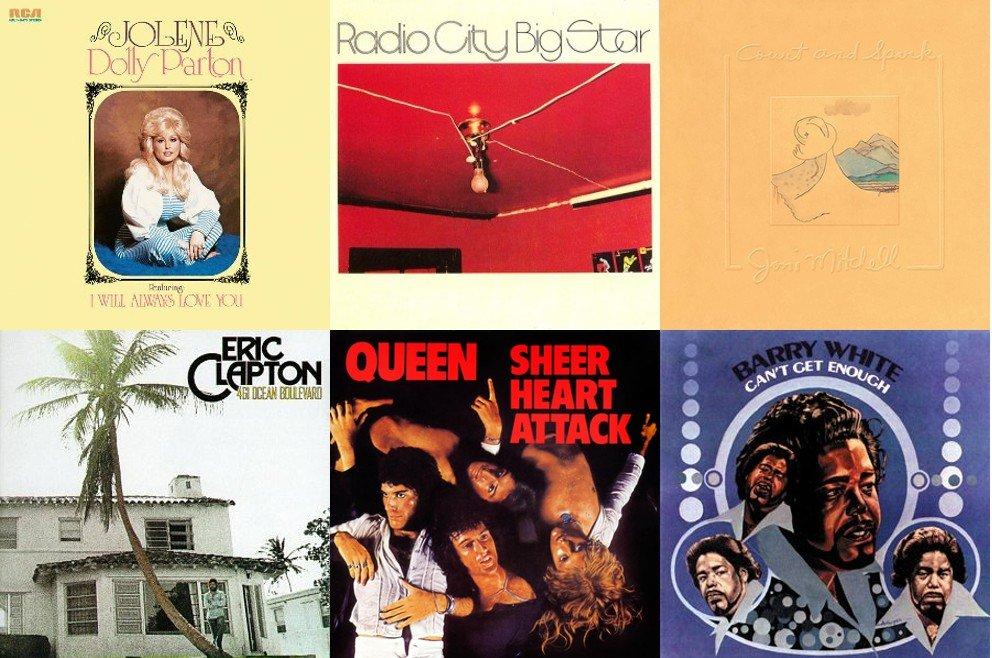Despite claims by surveyed CNN readers, 1974 was not a year marked by bad music. The Ramones played their first gig. ABBA won Eurovision with the earworm "Waterloo," which became an international hit and launched the Swedes to stardom. Those 365 days were marked by chart-topping debuts, British bangers and prog-rock dystopian masterpieces. Disenchantment, southern pride, pencil thin mustaches and tongue-in-cheek warnings to "not eat yellow snow" filled the soundwaves.
1974 was defined by uncertainty and chaos following a prolonged period of crisis. The ongoing OPEC oil embargo and the resulting energy shortage caused skyrocketing inflation, exacerbating the national turmoil that preceded President Nixon’s resignation following the Watergate scandal. Other major events also shaped the zeitgeist: Stephen King published his first novel, Carrie, Muhammad Ali and George Foreman slugged it out for the heavyweight title at "The Rumble in the Jungle," and People Magazine published its first issue.
Musicians reflected a general malaise. Themes of imprisonment, disillusionment and depression — delivered with sardonic wit and sarcasm — found their way on many of the records released that year. The mood reflects a few of the many reasons these artistic works still resonate.
From reggae to rock, cosmic country to folk fused with jazz, to the introduction of a new Afro-Trinidadian music style, take a trip back 18,262 days to recall 20 albums celebrating their 50th anniversaries in 2024.
Joni Mitchell - Court & Spark
Joni Mitchell’s Court & Spark is often hailed as the pinnacle of her artistic career and highlights the singer/songwriter’s growing interest in jazz, backed by a who’s who of West Coast session musicians including members of the Crusaders and L.A. Express.
As her most commercially successful record, the nine-time GRAMMY winner presents a mix of playful and somber songs. In an introspective tone, Mitchell searches for freedom from the shackles of big-city life and grapples with the complexities of love lost and found. The record went platinum — it hit No.1 on the Billboard charts in her native Canada and No. 2 in the U.S., received three GRAMMY nominations and featured a pair of hits: "Help Me" (her only career Top 10) and "Free Man in Paris," an autobiographical song about music mogul David Geffen.
In 2023 we lost legendary songwriter Gordon Lightfoot. He left behind a treasure trove of country-folk classics, several featured on his album Sundown. These songs resonated deeply with teenagers who came of age in the early to mid-1970s — many sang along in their bedrooms and learned to strum these storied songs on acoustic guitars.
Recorded in Toronto, at Eastern Sound Studios, the album includes the only No.1 Billboard topper of the singer/songwriter’s career. The title cut, "Sundown," speaks of "a hard-loving woman, got me feeling mean" and hit No. 1 on both the pop and the adult contemporary charts.
In Canada, the album hit No.1 on the RPM Top 100 in and stayed there for five consecutive weeks. A second single, "Carefree Highway," peaked at the tenth spot on the Billboard Hot 100, but hit No.1 on the Easy Listening charts.
Eric Clapton - 461 Ocean Boulevard
Eric Clapton’s 461 Ocean Boulevard sold more than two million copies worldwide. His second solo studio record followed a three-year absence while Clapton battled heroin addiction. The record’s title is the address where "Slowhand" stayed in the Sunshine State while recording this record at Miami’s Criteria Studios.
A mix of blues, funk and soulful rock, only two of the 10 songs were penned by the Englishman. Clapton’s cover of Bob Marley’s "I Shot the Sheriff," was a massive hit for the 17-time GRAMMY winner and the only No.1 of his career, eclipsing the Top 10 in nine countries. In 2003, the guitar virtuoso’s version of the reggae song was inducted into the GRAMMY Hall of Fame.
Lynyrd Skynyrd - Second Helping
No sophomore slump here. This "second helping" from these good ole boys is a serious serving of classic southern rock ‘n’ roll with cupfuls of soul. Following the commercial success of their debut the previous year, Lynyrd Skynyrd’s second studio album featured the band’s biggest hit: "Sweet Home Alabama."
The anthem is a celebration of Southern pride; it was written in response to two Neil Young songs ("Alabama" and "Southern Man") that critiqued the land below the Mason-Dixon line. The song was the band’s only Top 10, peaking at No. 8 on the Billboard Top 100. Recorded primarily at the Record Plant in Los Angeles, other songs worth a second listen here include: the swampy cover of J.J. Cale's "Call Me The Breeze," the boogie-woogie foot-stomper "Don’t Ask Me No Questions" and the country-rocker "The Ballad of Curtis Loew."
Bad Company - Bad Company
A little bit of blues, a token ballad, and plenty of hard-edged rock, Bad Company released a dazzling self-titled debut album. The English band formed from the crumbs left behind by a few other British groups: ex-Free band members including singer Paul Rodgers and drummer Simon Kirke, former King Crimson member bassist Boz Burrel, and guitarist Mick Ralphs from Mott the Hoople.
Certified five-times platinum, Bad Company hit No.1 on the Billboard 200 and No. 3 in the UK, where it spent 25 weeks. Recorded at Ronnie Lane’s Mobile Studio, the album was the first record released on Led Zeppelin’s Swan Song label. Five of the eight tracks were in regular FM rotation throughout 1974; "Bad Company," "Can’t Get Enough" and "Ready for Love" remain staples of classic rock radio a half century later.
Supertramp - Crime of the Century
"Dreamer, you know you are a dreamer …" sings Supertramp’s lead singer Roger Hodgson on the first single from their third studio album. The infectious B-side track "Bloody Well Right," became even more popular than fan favorite, "Dreamer."
The British rockers' dreams of stardom beyond England materialized with Crime of the Century. The album fused prog-rock with pop and hit all the right notes leading to the band’s breakthrough in several countries — a Top 5 spot in the U.S. and a No.1 spot in Canada where it stayed for more than two years and sold more than two million copies. A live version of "Dreamer," released six years later, was a Top 20 hit in the U.S.
Big Star - Radio City
As one of the year’s first releases, the reception for this sophomore effort from American band Big Star was praised by critics despite initial lukewarm sales (which were due largely to distribution problems). Today, the riveting record by these Memphis musicians is considered a touchstone of power pop; its melodic stylings influenced many indie rock bands in the 1980s and 1990s, including R.E.M. and the Replacements. One of Big Star’s biggest songs, "September Gurls," appears here and was later covered by The Bangles.
In a review, American rock critic Robert Christgau, called the record "brilliant and addictive." He wrote: "The harmonies sound like the lead sheets are upside down and backwards, the guitar solos sound like screwball readymade pastiches, and the lyrics sound like love is strange, though maybe that's just the context."
The Eagles - On the Border
The third studio record from California harmonizers, the Eagles, shows the band at a crossroads — evolving ever so slightly from acoustically-inclined country-folk to a more distinct rock ‘n’ roll sound. On the Border marks the studio debut for band member Don Felder. His contributions and influence are seen through his blistering guitar solos, especially in the chart-toppers "Already Gone" and "James Dean."
On the Border sold two million copies, driven by the chart topping ballad "Best of My Love" — the Eagles first No.1 hit song. The irony: the song was one of only two singles Glyn Johns produced at Olympic Studios in London. Searching for that harder-edged sound, the band hired Bill Szymczyk to produce the rest of the record at the Record Plant in L.A.
Jimmy Buffett - Livin’ and Dyin in ¾ Time & A1A
Back in 1974, 28-year-old Jimmy Buffett was just hitting his stride. Embracing the good life, Buffett released not just one, but two records that year. Don Grant produced both albums that were the final pair in what is dubbed Buffett’s "Key West phase" for the Florida island city where the artist hung his hat during these years.
The first album, Livin’ and Dyin’ in ¾ Time, was released in February and recorded at Woodland Sound Studio in Nashville, Tennessee. It featured the ballad "Come Monday," which hit No. 30 on the Hot 100 and "Pencil Thin Mustache," a concert staple and Parrothead favorite. A1A arrived in December and hit No. 25 on the Billboard 200 charts. The most beloved songs here are "A Pirate Looks at Forty" and "Trying to Reason with Hurricane Season."
Buffett embarked on a tour and landed some plume gigs, including opening slots for two other artists on this list: Frank Zappa and Lynyrd Skynyrd.
Genesis - The Lamb Lies Down on Broadway
Following a successful tour of Europe and North America for their 1973 album, Selling England by the Pound, Genesis booked a three-month stay at the historic Headley Grange in Hampshire, a former workhouse. In this bucolic setting, the band led by frontman Peter Gabriel, embarked on a spiritual journey of self discovery that evolved organically through improvisational jams and lyric-writing sessions.
This period culminated in a rock opera and English prog-rockers’s magnum opus, a double concept album that follows the surreal story of a Puerto Rican con man named Rael. Songs are rich with American imagery, purposely placed to appeal to this growing and influential fan base across the pond.
This album marked the final Genesis record with Gabriel at the helm. The divisiveness between the lyricist, Phil Collins, Mike Rutherford and Tony Banks came to a head during tense recording sessions and led to Gabriel’s departure from the band to pursue a solo career, following a 102-date tour to promote the record. The album reached tenth spot on the UK album charts and hit 41 in the U.S.
David Bowie - Diamond Dogs
Is Ziggy Stardust truly gone? With David Bowie, the direction of his creative muse was always a mystery, as illustrated by his diverse musical legacy. What is clear is that Bowie’s biographers agree that this self-produced album is one of his finest works.
At the point of producing Diamond Dogs, the musical chameleon and art-rock outsider had disbanded the band Spiders from Mars and was at a crossroads. His plans for a musical based on the Ziggy character and TV adaptation of George Orwell’s "1984" both fell through. In a place of uncertainty and disenchantment, Bowie creates a new persona: Halloween Jack. The record is lyrically bleak and evokes hopelessness. It marks the final chapter in his glam-rock period — "Rebel Rebel" is the swaggering single that hints at the coming punk-rock movement.
Bob Marley - Natty Dread
Bob Marley’s album "Natty Dread," released first in Jamaica in October 1974 later globally in 1975, marked his first record without his Rastafari brethren in song Peter Tosh and Bunny Wailer. It also introduced the back-up vocal stylings of the I Threes (Rita Marley, Judy Mowatt and Marcia Griffiths.)
The poet and the prophet Marley waxes on spiritual themes with songs like "So Jah Seh/Natty Dread'' and political commentary with tracks,"Them Belly Full (But We Hungry)" and "Rebel Music (3 O’clock Road Block)." The album also Includes one of the reggae legend’s best-loved songs, the ballad "No Woman No Cry," which paints a picture of "government yards in Trenchtown" where Marley’s feet are his "only carriage."
Queen - Sheer Heart Attack
The third studio album released by the British rockers, Queen, is a killer. The first single, "Killer Queen," reached No. 2 on the British charts — and was the band’s first U.S. charting single. The record also peaked at No.12 in the U.S. Billboard albums charts.
This record shows the four-time GRAMMY nominees evolving and shifting from progressive to glam rock. The album features one of the most legendary guitar solos and riffs in modern rock by Brian May on "Brighton Rock." Clocking in at three minutes, the noodling showcases the musician’s talent via his use of multi-tracking and delays to great effect.
Randy Newman - Good Old Boys
Most recognize seven-time GRAMMY winner Randy Newman for his work on Hollywood blockbuster scores. But, in the decade before composing and scoring movie soundtracks, the songwriter wrote and recorded several albums. Good Old Boys was Newman’s fourth studio effort and his first commercial breakthrough, peaking at No. 36 on the Billboard charts.
The concept record, rich in sarcasm and wit, requires a focused listen to grasp the nuances of Newman’s savvy political and social commentary. The album relies on a fictitious narrator, Johnny Cutler, to aid the songwriter in exploring themes like "Rednecks" and ingrained generational racism in the South. "Mr. President (Have Pity on the Working Man)" is as relevant today as when Newman penned it as a direct letter to Richard Nixon. Malcolm Gladwell described this record as "unsettling" and a "perplexing work of music."
Frank Zappa - Apostrophe
Rolling Stone once hailed Frank Zappa’s Apostrophe as "truly a mother of an album." The album cover itself, featuring Zappa’s portrait, seems to challenge listeners to delve into his eccentric musical universe. Apostrophe was the sixth solo album and the 19th record of the musician’s prolific career. The album showcases Zappa’s tight and talented band, his trademark absurdist humor and what Hunter S. Thompson described as "bad craziness."
Apostrophe was the biggest commercial success of Zappa’s career. The record peaked at No. 10 on the Billboard Top 200. The A-side leads off with a four-part suite of songs that begins with "Don’t Eat the Yellow Snow" and ends with "Father Oblivion," a tale of an Eskimo named Nanook. The track "Uncle Remus," tackles systemic racism in the U.S. with dripping irony. In less than three minutes, Zappa captures what many politicians can’t even begin to explain. Musically, Apostrophe is rich in riffs from the two-time GRAMMY winner that showcases his exceptional guitar skills in the title track that features nearly six minutes of noodling.
Gram Parsons - Grievous Angel
Grievous Angel can be summed up in one word: haunting. Recorded in 1973 during substance-fueled summer sessions in Hollywood, the album was released posthumously after Gram Parsons died of a drug overdose at 26. Grievous Angel featured only two new songs that Parsons’ penned hastily in the studio "In My Hour of Darkness" and "Return of the Grievous Angel."
This final work by the cosmic cowboy comprises nine songs that have since come to define Parson’s short-lived legacy to the Americana canon. The angelic voice of Emmylou Harris looms large — the 13-time GRAMMY winner sings harmony and backup vocals throughout. Other guests include: guitarists James Burton and Bernie Leadon, along with Linda Ronstadt’s vocals on "In My Hour of Darkness."
Neil Young - On The Beach
On the Beach, along with Tonight’s the Night (recorded in 1973, but not released until 1975) rank as Neil Young’s darkest records. Gone are the sunny sounds of Harvest, replaced with the singer/songwriter’s bleak and mellow meditations on being alone and alienated.
"Ambulance Blues" is the centerpiece. The nine-minute track takes listeners on a journey back to Young’s "old folkie days" when the "Riverboat was rockin’ in the rain '' referencing lament and pining for time and things lost. The heaviness and gloom are palpable throughout the album, with the beach serving as an extended metaphor for Young’s malaise.
Dolly Parton - Jolene
Imagine writing not just one, but two iconic classics in the same day. That’s exactly what Dolly Parton did with two tracks featured on this album. The first is the titular song, "Jolene," recorded at RCA Studio B in Nashville. The song has been covered by more than a dozen artists.
Released as the first single the previous fall, "Jolene," rocketed to No.1 on the U.S. country charts and garnered the 10-time GRAMMY winner her first Top 10 in the U.K. The song was nominated for a GRAMMY in 1975 and again in 1976 for Best Country Vocal Performance. However, it didn’t take home the golden gramophone until 2017, when a cover by the Pentatonix featuring Parton won a GRAMMY for Best Country Duo/Group Performance.
Also included on this album is "I Will Always Love You," a song that Whitney Houston famously covered in 1992 for the soundtrack of the romantic thriller, The Bodyguard, earning Parton significant royalties.
Barry White - Can’t Get Enough
The distinctive bass-baritone of two-time GRAMMY winner Barry White, is unmistakable. The singer/songwriter's sensual, deep vocal delivery is as loved today as it was then. On this record, White is backed by the 40-member strong Love Unlimited Orchestra, one of the best-selling artists of all-time.
White wrote "Can’t Get Enough of Your Love, Babe," about his wife during a sleepless night. This song is still played everywhere — from bedrooms to bar rooms, even 50 years on. In the U.S., the record hit the top of the R&B pop charts and No.1 on the Billboard 200. Although the album features only seven songs, two of them, including "You’re the First, the Last, My Everything" reached the top spot on the R&B charts.
Lord Shorty - Endless Vibrations
Lord Shorty, born Garfield Blackman, is considered the godfather and inventor of soca music. This Trindadian musician revolutionized his nation’s Calypso rhythms, creating a vibrant up-tempo style that became synonymous with their world-renowned Carnival.
Fusing Indian percussion instrumentation with well-established African calypso rhythms, Lord Shorty created what he originally dubbed "sokah," meaning, "calypso soul." The term soca, as it’s known today, emerged because of a journalist’s altered writing of the word, which stuck. The success of this crossover hit made waves across North America and made the island vibrations more accessible outside the island nation.
Artists Who Are Going On Tour In 2024: The Rolling Stones, Drake, Olivia Rodrigo & More

